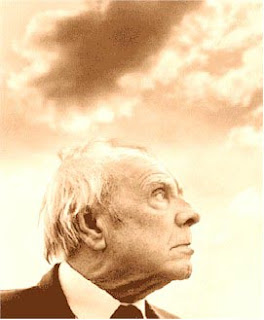Jorge Luis Borges was born in an educated middle-class family in August 1899. They were in comfortable circumstances, but not wealthy enough to live in downtown Buenos Aires. They resided in Palermo, then a poorer suburb of the city. Borges's mother, Leonor Acevedo Suárez, came from a traditional Uruguayan family of "pure" criollo (Spanish) descent. Her family had been much involved in the European settling of South America and she spoke often of their heroic actions.[9] Borges's 1929 book Cuaderno San Martín includes the poem "Isidoro Acevedo," commemorating his grandfather, Isidoro de Acevedo Laprida, a soldier of the Buenos Aires Army. A descendant of the Argentine lawyer and politician Francisco Narciso de Laprida, Acevedo fought in the battles of Cepeda in 1859, Pavón in 1861, and Los Corrales in 1880. Isidoro de Acevedo Laprida died of pulmonary congestion in the house where his grandson Jorge Luis Borges was born. Borges grew up hearing about the faded family glory. On the other side, Borges's father, Jorge Guillermo Borges Haslam, was part Spanish, part Portuguese, and half English, also the son of a colonel. Borges Haslam, whose mother was English, grew up speaking English at home, and took his own family frequently to Europe. England and English pervaded the family home.
A Patio
Simplicity
Limits
 |
| Jorge Luis Borges Poems |
 |
| Jorge Luis Borges Poems |
A Patio
AT EVENING
they grow weary, the patio’s two or three colours.
Tonight, the moon, bright circle,
fails to dominate space.
Patio, channel of sky.
The patio is the slope
down which sky flows into the house.
Serene,
eternity waits at the crossroad of stars.
It’s pleasant to live in the friendly dark
of entrance-way, arbour, and cistern.
Simplicity
IT OPENS, THE GATE TO THE GARDEN
with the docility of a page
that frequent devotion questions
and inside, my gaze
has no need to fix on objects
that already exist, exact, in memory.
I know the customs and souls
and that dialect of allusions
that every human gathering goes weaving.
I’ve no need to speak
nor claim false privilege;
they know me well who surround me here,
know well my afflictions and weakness.
This is to reach the highest thing,
that Heaven perhaps will grant us:
not admiration or victory
but simply to be accepted
as part of an undeniable Reality,
like stones and trees.
Limits
OF THESE STREETS THAT DEEPEN THE SUNSET,
There must be one (but which) that I’ve walked
Already one last time, indifferently
And without knowing it, submitting
To One who sets up omnipotent laws
And a secret and a rigid measure
For the shadows, the dreams, and forms
That work the warp and weft of this life.
If all things have a limit and a value
A last time nothing more and oblivion
Who can say to whom in this house
Unknowingly, we have said goodbye?
Already through the grey glass night ebbs
And among the stack of books that throws
A broken shadow on the unlit table,
There must be one I will never read.
In the South there’s more than one worn gate
With its masonry urns and prickly pear
Where my entrance is forbidden
As it were within a lithograph.
Forever there’s a door you have closed,
And a mirror that waits for you in vain;
The crossroad seems wide open to you
And there a four-faced Janus watches.
There is, amongst your memories, one
That has now been lost irreparably;
You’ll not be seen to visit that well
Under white sun or yellow moon.
Your voice cannot recapture what the Persian
Sang in his tongue of birds and roses,
When at sunset, as the light disperses,
You long to speak imperishable things.
And the incessant Rhone and the lake,
All that yesterday on which today I lean?
They will be as lost as that Carthage
The Romans erased with fire and salt.
At dawn I seem to hear a turbulent
Murmur of multitudes who slip away;
All who have loved me and forgotten;
Space, time and Borges now leaving me
No comments:
Post a Comment